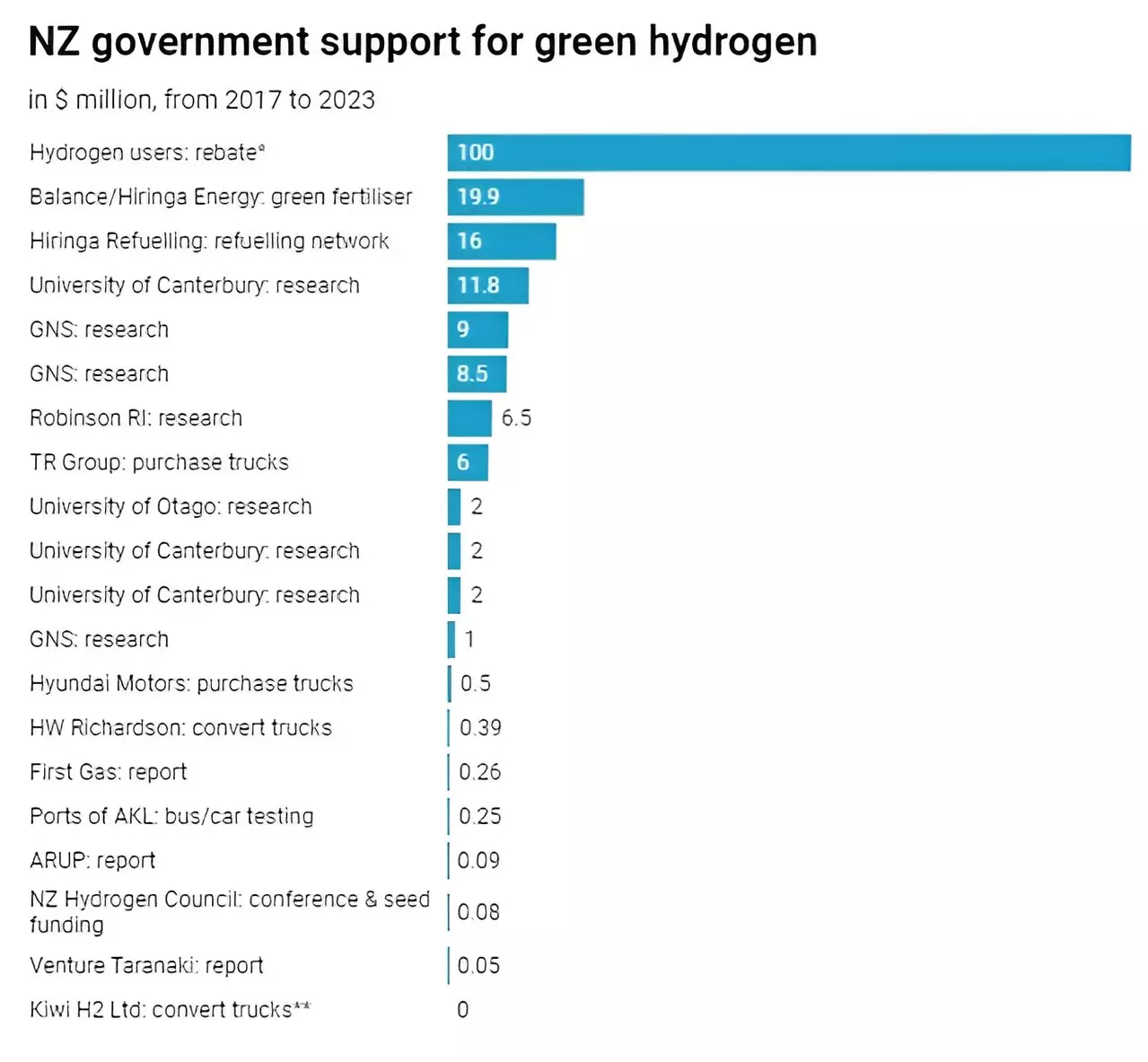The recent failure of a deal to deliver hydrogen-powered trucks to New Zealand, coupled with the removal of a NZ$100 million government rebate scheme for green hydrogen users in the 2024 budget, has cast a shadow of uncertainty over the future of green hydrogen technology in the country. The government’s initial investment of $6.5 million for the purchase of heavy freight hydrogen trucks has hit a roadblock due to the abrupt withdrawal of the US company Hyzon. Despite this setback, global interest in hydrogen as a clean energy alternative for transport and other sectors continues to rise.
While New Zealand has shown strong government support for green hydrogen, there is a notable absence of critical voices in the ongoing debate. Proponents of green hydrogen argue that it is crucial for decarbonizing sectors that are difficult to electrify directly, such as heavy road transport, shipping, and fertilizer production. However, opinions on the viability of hydrogen as the best choice for these sectors vary widely.
The optimism surrounding green hydrogen in government reports and narratives paints a rosy picture of its potential in New Zealand. The 2019 H2 Taranaki roadmap positioned the region as a leader in hydrogen production, while subsequent reports emphasized the role of green hydrogen in reducing emissions, driving economic development, and supporting energy sector goals. However, a closer analysis reveals a lack of mention of weaknesses and threats, with challenges being framed in a positive light.
Despite the overwhelmingly positive narrative surrounding green hydrogen, critical analysis is essential for making informed decisions about its implementation in New Zealand. While media reports have predominantly focused on the benefits of green hydrogen, only a small percentage have offered critical perspectives. Experts like David Cebon and Michael Barnard caution against overlooking alternatives such as battery electric vehicles, which may offer more efficient and cost-effective solutions for heavy transport.
Recent developments in battery technology and fast-charging electric trucks have raised doubts about the long-term viability of hydrogen fuel cells in road transport. Rising costs and practicality issues have led companies in Europe to opt for cheaper all-electric trains over hydrogen-powered ones. The debate over green hydrogen’s efficiency, effectiveness, and expense compared to other alternatives continues to intensify, raising questions about the wisdom of heavy investments in this technology.
In light of these challenges, a more nuanced perspective on green hydrogen is necessary to guide future policy decisions in New Zealand. Acknowledging that hydrogen is an energy carrier rather than a resource in itself is crucial for developing a sustainable energy strategy. Independent, critical analysis free from commercial interests is needed to shape government policy and investment decisions in the green hydrogen sector.
A shift towards a new green hydrogen narrative will enable New Zealand to realign its resources towards applications with the greatest potential for delivering on decarbonization and sustainability goals. Key industries in the country could transition from fossil fuels to green hydrogen to produce essential products like green steel, ammonia, fertilizer, and methanol. By fostering a more balanced and informed discussion on green hydrogen, New Zealand can make strategic choices that pave the way towards a cleaner and greener future.


Leave a Reply